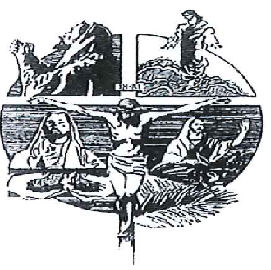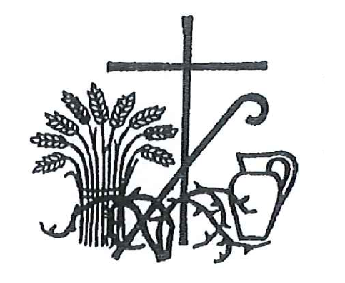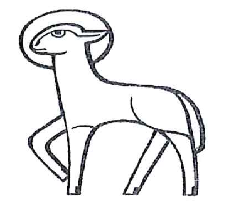Lent & the "Gesima"
Season
 The Liturgical preparation for Easter takes place through 3 periods or steps: The first is the "-gesimas". These three Sundays before Lent constitute catechesis in the Grace of God in which that grace is examined from three perspectives:
The Liturgical preparation for Easter takes place through 3 periods or steps: The first is the "-gesimas". These three Sundays before Lent constitute catechesis in the Grace of God in which that grace is examined from three perspectives:
Septuagesima (meaning 'about 70 days') - Grace is undeserved. The Collect for this Sunday implores God to graciously hear us, who are justly punished for our sin, so that we may be delivered by God's goodness. The goodness of God is emphasized in the parable (Matthew 20: 1-16), where all the laborers receive the reward because of the goodness of the landowner. So we too, receive the reward of eternal life, because God is good, and Another has borne the heat and burden of the day for us that we might have it.
Sexagesima (meaning 'about 60 days') - Grace is passively received. In the Collect, we pray to the God who sees that we put not our trust in anything we do, but mercifully defends us by His power. In the parable of the sower, the seed of God's Word is passively received in good and noble hearts.
Quinquagesima (meaning 'about 50 days') - Grace is not easily understood. In the Gospel, Jesus predicts His passion and the disciples "understood none of these things: and this saying was his from them, neither knew they the things which were spoken."(Luke 18:34)
 The three "Gesima" Sundays begin the Lenten Preparation for Easter. They take on the character of Lent, but mildly. The color becomes violet, the color of Lent. The "Alleluias" are dropped. Pictures and Crosses remain unveiled. Flowers may adorn the chancel. In the Gesimas, this provides a gradual progression of liturgical removels as we approach Passiontide.
The three "Gesima" Sundays begin the Lenten Preparation for Easter. They take on the character of Lent, but mildly. The color becomes violet, the color of Lent. The "Alleluias" are dropped. Pictures and Crosses remain unveiled. Flowers may adorn the chancel. In the Gesimas, this provides a gradual progression of liturgical removels as we approach Passiontide.
The second step or stage of Lent begins on Ash Wednesday. This second stage ends when the week of Laetare (the 4th Sunday in Lent) is completed. In addition to the omissions and changes that began in the "Gesimas", flowers no longer normally adorn the chancel, and the crucifix and crosses are veiled. During these four Sundays, the focus is on temptation and faith, and the Christian's struggle:
On Invocavit Sunday the Lord is tested in the Wilderness.
On Reminiscere Sunday, the faith of the Canaanite woman is tested.
On Oculi Sunday, the people tempt our Lord to show them a sign from heaven.
Laetare Sunday is "refreshment" Sunday.
 The final stage is Passiontide, which begins with Judica Sunday (Passion Sunday, the 5th Sunday in Lent), and extends through Holy Week and the Triduum ("three holy days" - which includes Maundy Thursday, Good Friday, Holy Saturday). Now the focus is expressly on our Lord's passion. The liturgy is spoken on Judica Sunday to emphasize the intense passion which our Lord endured. This intensity builds until we finally arrive at the empty tomb.
The final stage is Passiontide, which begins with Judica Sunday (Passion Sunday, the 5th Sunday in Lent), and extends through Holy Week and the Triduum ("three holy days" - which includes Maundy Thursday, Good Friday, Holy Saturday). Now the focus is expressly on our Lord's passion. The liturgy is spoken on Judica Sunday to emphasize the intense passion which our Lord endured. This intensity builds until we finally arrive at the empty tomb.

